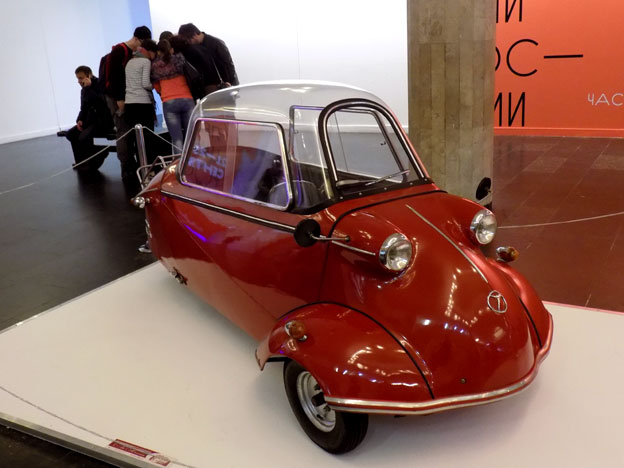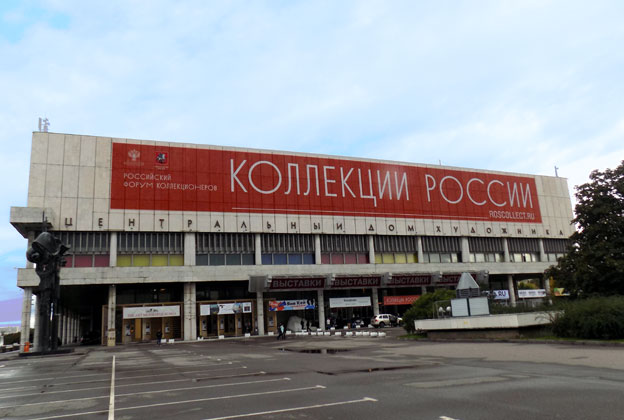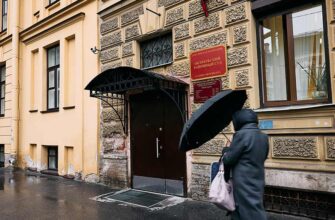The Russian Forum of Collectors is held in the Central house of artist in Moscow on September 21-25, 2016. The event is supported by Ministry of culture of the Russian Federation and the government of Moscow.
The subject of the exhibition – 50 collections of various items, the total exhibition area is 10’000 m2.
According to Russian filologist V. Dahl, the meaning of collection is “combination and union of homogenous and wonderful things.” The collector is the person who is interested in some question of science and culture, who picks up objects of material culture related thematically, chronologically etc. Picking up a collection, therefore, is a set of monuments on a chosen subject according to a certain method of collector.
The program of the Forum includes all the main aspects of collecting: scientific, educational, trade fair and demonstration. It consists of the presentation of the collections, communication with collectors, lectures on art and guided tours (including those for children), as well as consultation of expert. For everyone who have potentially valuable items, it is a chance to obtain their free assessment.
At the entrance visitors are greeted by cars Rolls-Royce 1930-1960s yy from the collection of the “Kamyshmash” garage and Messerschmitt from the restaurant La Coline.
On the second floor there are collection of modern painting by I. Markin, M. Golofeeva, A. Dobrovinsky, A. Moroz, G. Titov, Taranovs, etc.
We can find there an interesting collection «Heritage Of the Union» – the collection, compiled by the former State Union of Artists filled by works of their members from 15 States of the former USSR.
On the third floor there is a vivid exposition of a variety of items, starting with the pre-revolutionary period. Among them we see Dmitry Suetin (with his pre-revolutionary certificates), M. Trenikhin (faleristics), A. Trofimov (the collection of writing machines), M. Melitonyan (transport cards) and greeting cards, photo cards, matches and more.
Particularly valuable to us is the fact that the organizers of the collectors are presented at the show themselves and they answer visitors’ questions about their collections, opening up a world of knowledge that has been assembled with passion.
Kindly find below an interview to cultural and political magazine “E Vesti” by curator of the Collector’s Forum Ph. D. Arsen Melitonyan. We were talking about aims and objectives of the Forum, about collecting as part of the culture and of its current state.

E VESTI: Arsen, my father accustomed me to collecting as meaningful memory storage, like you did for your children. Collecting is a significant part of the spiritual education of the child, isn’t it?
Ersen Melitonyan: This is the first and one of the most important areas of collecting. It is primarily intergenerational communication, the ability to communicate between generations, grandparents-children-grandchildren. In every family, in every home there are stored pieces of our history. We’re talking about collecting as of creating a family archive, the ability to organize collection, to tell children about family history, about the country’s history through history of family.
I became a collector thanks to my grandfather, who brought me cards. Because of this fact I began to collect postcards with cities around the world, and I had the best grade of geography, because I knew by heart the capitals of all countries of the world.
Accordingly, it is also educational activities. Here we have behind 3 months passed with the “Children’s Museum of the history of children’s posters” – a big exhibition where we showed to children and adults the Russian folk tale, the history of the Russian costume, we described images of children in pre-revolutionary Russia and the Soviet Union, etc. Today, the collection becomes a part of the scientific heritage, it becomes basis for scientific works. Only the card is already an objects for 5 or 6 PhD theses, where it was used as a source for cultural history.
There is a unique example in St. Petersburg where was created the “Museum of children’s art”. At this site children themselves collect modern postcards, which people just give up because they no longer need it. And children started collecting: someone does it on the topic of the theatre, flowers, cars. 3-4-grader scholars learn to get adult vision, serious attitude to collecting. Child makes his report and talks about his small collection. Of course, it will give him new understanding of other collections, for example, found in museums.
We have there 4-volume edition on the basis of the postcards dedicated to the first world war, where about 200 thousand stories in the postcard were published by the member States: Germany, Austria-Hungary, Russia, France, England and so on. It is both satire and propaganda, and fighting, and mercy, and death, injury, etc. With a help of the card the whole history of the first world war can be presented. Unique collection of falerists can tell us about the history of the Russian army and more. Marks are generally a separate issue, because it was issued by the state as a payment instrument, but also it promoted various activities related to history, culture, technology, science, sports etc.
Moreover, collecting is a hobby. Love for the Homeland is instilled through the passion, as well as the recognition of certain events, and the ability to organize something. When a child starts collecting stamps or postcards, he begins to systematize it, to learn something, looking at the images on the postcards, stamps and other rarities. Through this recognition penetration into history starts, that it is very important from the point of view of Patriotic education, education, education.
One more important point. Most collectors strive to ensure that their collection was not lost, because we all are not eternal. Sooner or later there comes a time when make a decision on the fate of the collection. Collectors make it a part of the common heritage, passing it to the collections. Not all of course, but this is a trend too. Someone is selling it, and there’s nothing wrong, it’s his private property, but someone reports it to the state or transfers it to public institutions for further exposure. For example, there is “international Union of bibliophiles” and there is ” Museum of bookplates and miniature books”. These are public organizations, but the people passed their collection of miniature books and exlibrises, they are stored or transmitted, to state Museums, like the Pushkin Museum or other museums.
As for me, part of my collection was transferred to “Russian State library of arts”, the other part was passed to the Russian state archive of socio-political history. I do it with joy. One collection my wife and me gave to the Museum-reserve “Alexandrovskaya Sloboda” devoted to time of Ivan The Terrible.
EV: Why collector is passed a collection in the common heritage? Why is it necessary for him?
Ersen Melitonyan: You know, for me it is important that my work is not lost. In our life anything can happen. There was a case when collection of my colleague was burned, he kept it at home. Unfortunately, there are some even more tragic cases, when people give life, including a violent way, and their collections are stolen, dissolved, etc. Federal service letter was published entire catalogs of stolen things. For the collector it is very important that a piece of his soul remained, so for me and for my spouse it is very important that someone else saw it. I have collected, I have fulfilled my mission.
What is more important, even if in real life it is not happening, it should remain virtual object. Many collectors are against any of the Internet technologies, but I’m for it. Because even that is impossible for any reason to save if, it is digitized and stored on the Internet, it is saved as a part of our heritage at least in this form.
Some things people are selling collection, there is nothing wrong. While a collection is not finished, a single thing is less expensive in this collection. Then people put their soul, heart, expose it. The state buys, auctions and antique shops works. This is also a part of our economy, the turnover of cultural values through their monetization, capitalization, increasing their cost. There are a lot of aspects.
EV: Now we are taught to throw everything away, all things are disposable. But, at the same time, collecting, as you rightly say, it is part of the heritage worth preserving, which guarantees the continuity of generations. Is there a future of healthy sight for life, including collecting?
Ersen Melitonyan: You know, there is a future, of course. We see it is the world trend and in Russia it is seen too. Even in that forum, which is here today, there is a crowd of people.
First of all, a large number of people that came here today, including plenty of young people. We will separately make a day of the young collector. When we conduct classes in schools, what a burning eyes children have when sorted the cards, stamps. Maybe we learn them little, but when it comes to them, they perceive it as something new, start to play it and some of them will be the collectors. So there is a future.
40% of people collect, but I say everyone collects something. We all bring Souvenirs from trips, we all somehow love something to gift, to organize, to dress, to pick up clothes. Fashion is also a kind collectibles.
EV: The last question is whether climate for collectibles is favorable in Russia today, from the point of view of the state?
Ersen Melitonyan: This is not the last question, this is the first question. You know, there are signs that the government has “seen” the collector.
During 70-80 years in Russia “all around was national, all around was mine”. There is cautious attitude to collectors, or altogether negative: “they have money and they can buy.” This attitude hadWe overcome public opinion, and the opinion of workers of state cultural institutions, who believe that government is the main. You have, well, there are private collections that the state has no such things. We believe it is necessary to work in cooperation state and private sector, to increase the share of non-state museums. But the question is how to prepare a legal base to be, on the one hand, the understanding that cultural values remain in the country, and, on the other hand, to have been facilitated import, export, capabilities, exhibiting the same things not only in Russia but also in other countries the large part of the population, but the trend is reversing now. Enthusiastic, active, motivated people – this is the Foundation that will raise the culture in the future.
We overcome public opinion, and the opinion of officials of state cultural institutions, who believe that the government is the main thing. They mark ther are private collections with the things state can not afford. We believe it is necessary to work in cooperation of state and private sector, to increase the share of non-state museums. But the question is how to prepare a legal base to be, on the one hand, understanding that cultural values remain in the country, and, on the other hand, to facilitate import, export, capabilities, exhibiting of things not only in Russia, but also in other countries
Collecting requires legislative matters. It is the inclusion of collectibles in the program of cultural development for the next period, changes of customs rules, collection evaluation. It is very difficult to import a large collection because there are customs issues. How you would import a few thousand marks, if they should all be described in the Declaration, etc., the accounting of the collections when received – this is a separate issue, a very serious and large. You have a collection and you want to put in the Bank to get a loan. It is the issue of valuation and liquidity of this collection.
Overall, one of the main objectives of the Forum collectors is the formation of a system of relationships in the legal field for the development of collecting.





